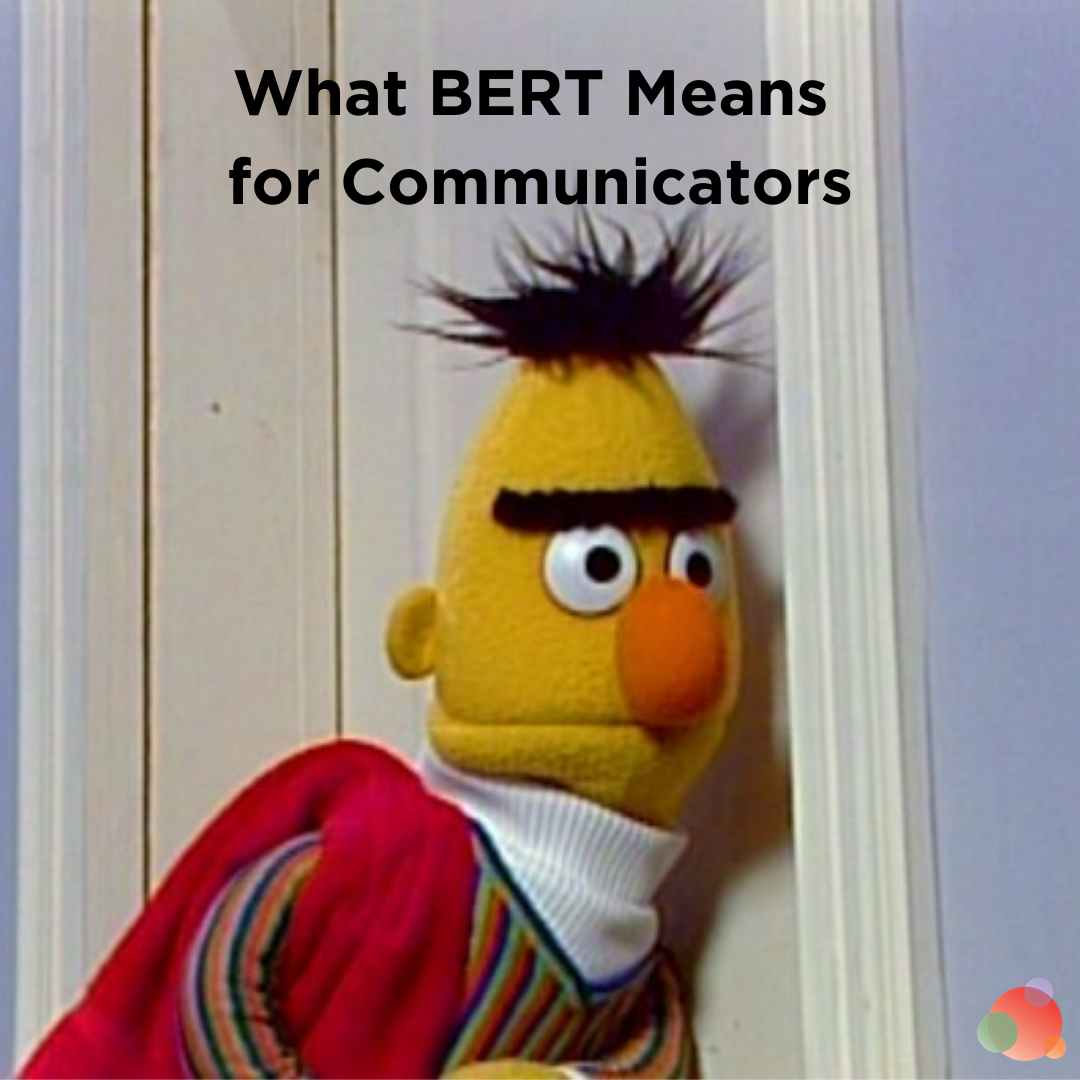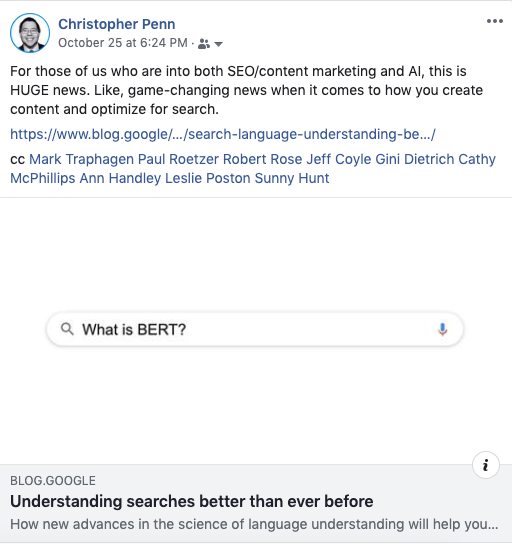 Last Friday night, I had my PJs on and was curled up on the couch with a glass of wine and my iPad as I aimlessly scrolled through Facebook.
Last Friday night, I had my PJs on and was curled up on the couch with a glass of wine and my iPad as I aimlessly scrolled through Facebook.
I was liking updates and photos and commenting on big wins and pre-Halloween costume photos.
And then I saw this…
Wow, Chris. Way to ruin a perfectly good Friday night. Now I have to WORK!? Thanks.
I set my glass of wine aside and read the article he linked to.
Then I got sucked in and started to dig into the latest and greatest Google algorithm update.
There is a lot of news with this one!
The stressful news is there is yet another update that you have to understand and implement.
The bad news is your search rankings may have taken a dive in the past week or so.
The good news is your search rankings should come back AND if you produce content for humans already, this update will only help you.
Let’s take a look at what it all means.
What Is BERT?
BERT stands for Bidirectional Encoder Representations from Transformers.
Yeah, I have no idea, either.
The gist of it is that it understands context A LOT better.
According to Search Engine Journal:
It helps a machine to understand what words in a sentence mean, but with all the nuances of context.
One of the best examples I’ve so far seen is “how to catch a cow fishing”.
Of course, you can’t catch a livestock animal whilst fishing (I mean, maybe you can, but that’d be super crazy), but you can catch a large striped bass.
In New England, a large striped bass is referred to as a cow.
Before BERT, you would have received images, videos, and links to the livestock—without the context of a fish referred to as a cow.
If you search that phrase post-BERT, you get all sorts of fun things about the bass (and about the livestock).
It now understands the different variations of “cow”, especially when combined with “fishing”.
In other words, the robots are getting smarter and smarter.
What this means to you is Google now understands word order and context.
As Christopher S. Penn put it:
You may have a page about, say, coffee shops in Boston and the word espresso may never appear on the page. If someone asks their voice-activated assistant, “What’s the nearest espresso to me that’s open right now?”, BERT will understand that a coffee shop may serve espresso and your site may show up in the search results.
E-A-T Your Content
For about a decade now (maybe not that long, but it’s been multiple years), we’ve been talking about the importance of creating the best piece of content for the topic on the internet.
That’s it.
If you create the best piece of content for the topic on the internet, it won’t matter what Google does to its algorithms.
You will always rank high in search because, well, no one else has anything better.
This is because Google has key E-A-T features:
- Expertise
- Authority
- Trust
If you create expertise, your content (and your site) will have authority, which then begins to build trust.
When you create the very best content on the topic on the internet, you automatically gain all three of those.
Now with BERT (so many acronyms, Google!), your best piece of content for the topic on the internet gets even more gold stars because it actually reads (or hears or watches) as good content.
If your communications strategy has evolved to create for humans first, robots second, you will continue to be rewarded.
If you’re still focused on keywords and crafting pages that address them, your strategy needs to change.
No matter what Google does, your goal is to EAT your content—or create the very best content for the topic on the internet.
Answer Questions Your People Ask
So what does that look like?
Answer the questions your prospects, customers, loyalists, and ambassadors ask with your content.
As far as I know, Marcus Sheridan popularized this idea many years ago and then formalized it in his book, They Ask, You Answer.
Back in the day, when he started talking about this idea, he still ran a pool company and the Great Recession nearly leveled his business (as it did for many of us).
He would create content (blog posts back then) that answered questions they got all the time at the pool company, such as:
- In-ground vs. above ground pools
- Will pool chemicals hurt my pets?
- What is the difference between fiberglass and concrete pools?
Because he was creating the best content on the topic on the internet, his pool company began to gain notoriety—and he became one of the most popular speakers in our space.
This strategy still works—and now BERT rewards it—and the best part is this works for both traditional search and voice-activated.
If you answer the questions your people ask, you will be found.
The Moral of the Story?
The moral of the story is this: don’t stress about all of the Google updates.
Yes, you absolutely should understand what is happening so you can explain it all to clients or to your executives when they ask.
But if your strategy is to always create the best content for the topic on the internet, you need not worry.
However, if your strategy has been to use farms to create your content or you have pages on your website dedicated to keywords or you are using shoddy link-building methods, you need to stress—and you need to make change.
Always remember to EAT your content and you’ll be fine.
Great content wins, no matter the topic.
Create for humans first and all of these updates won’t hurt you at all.